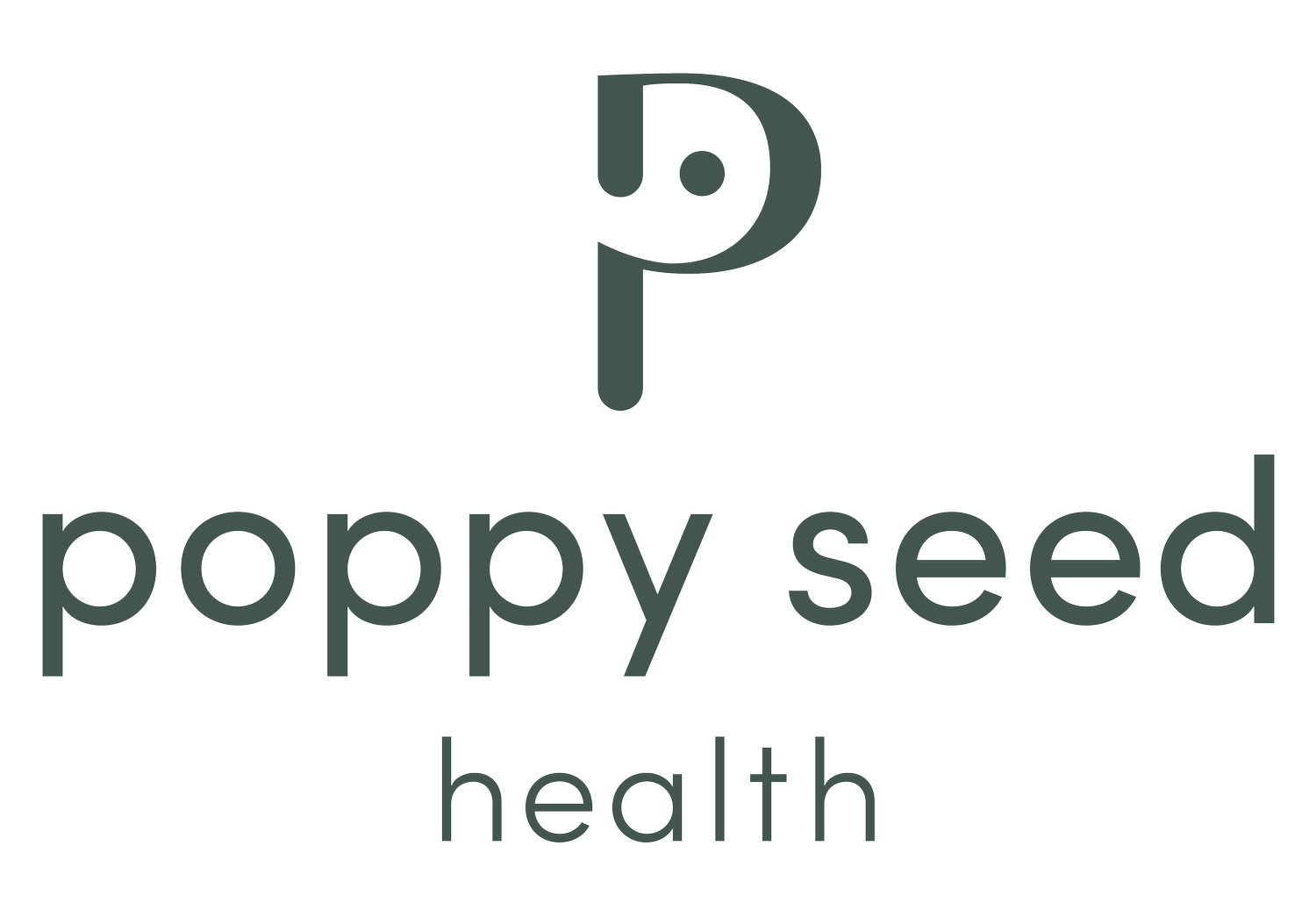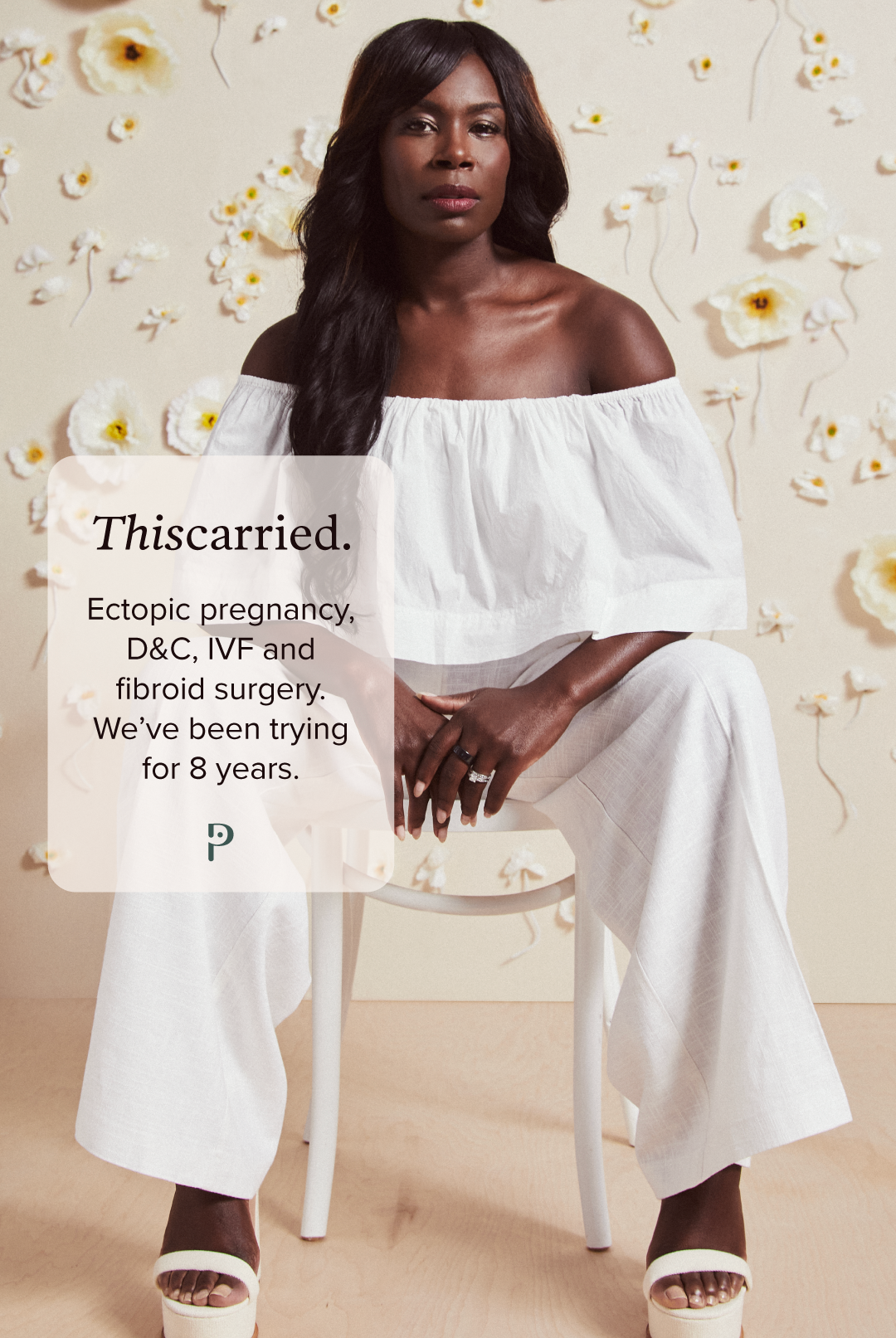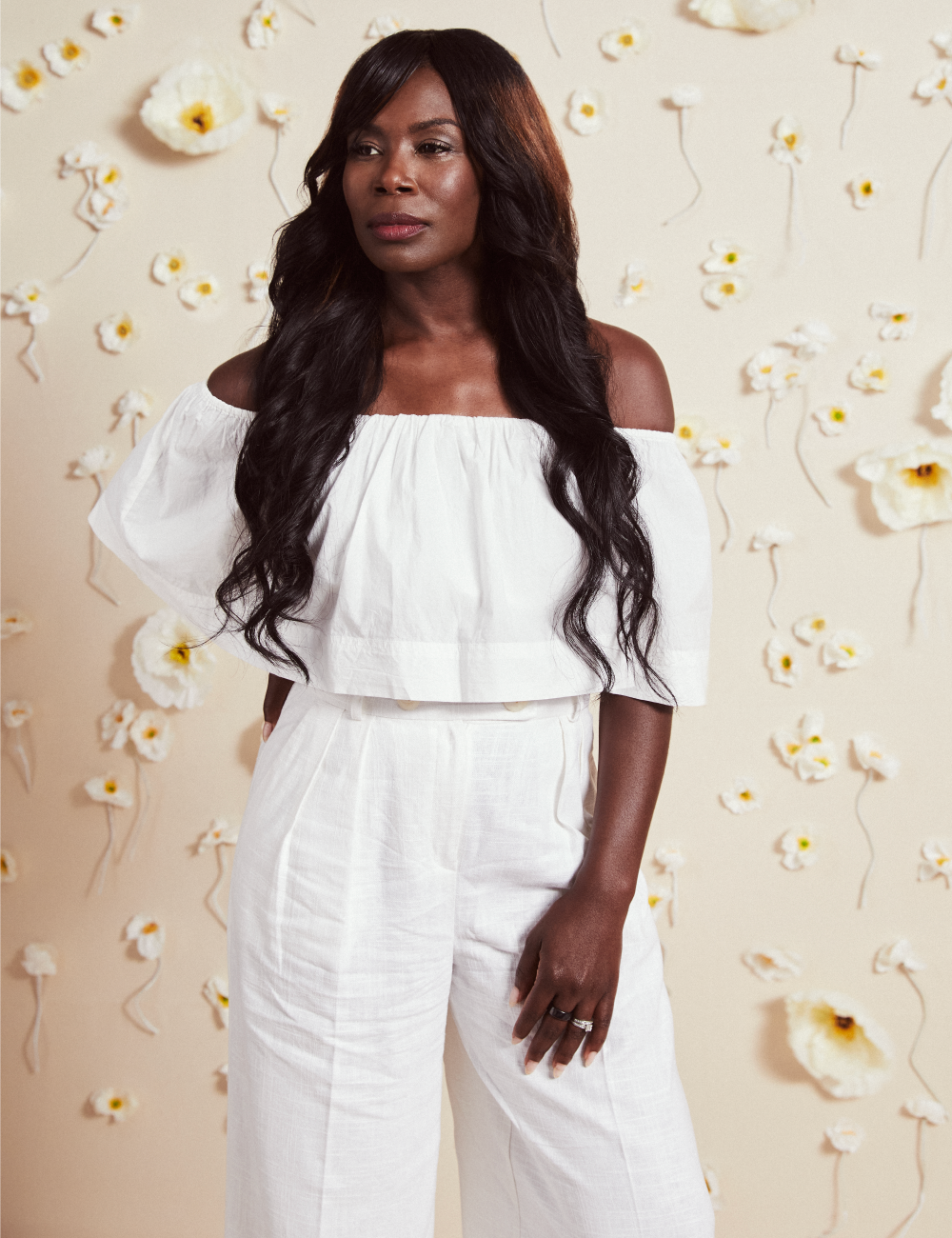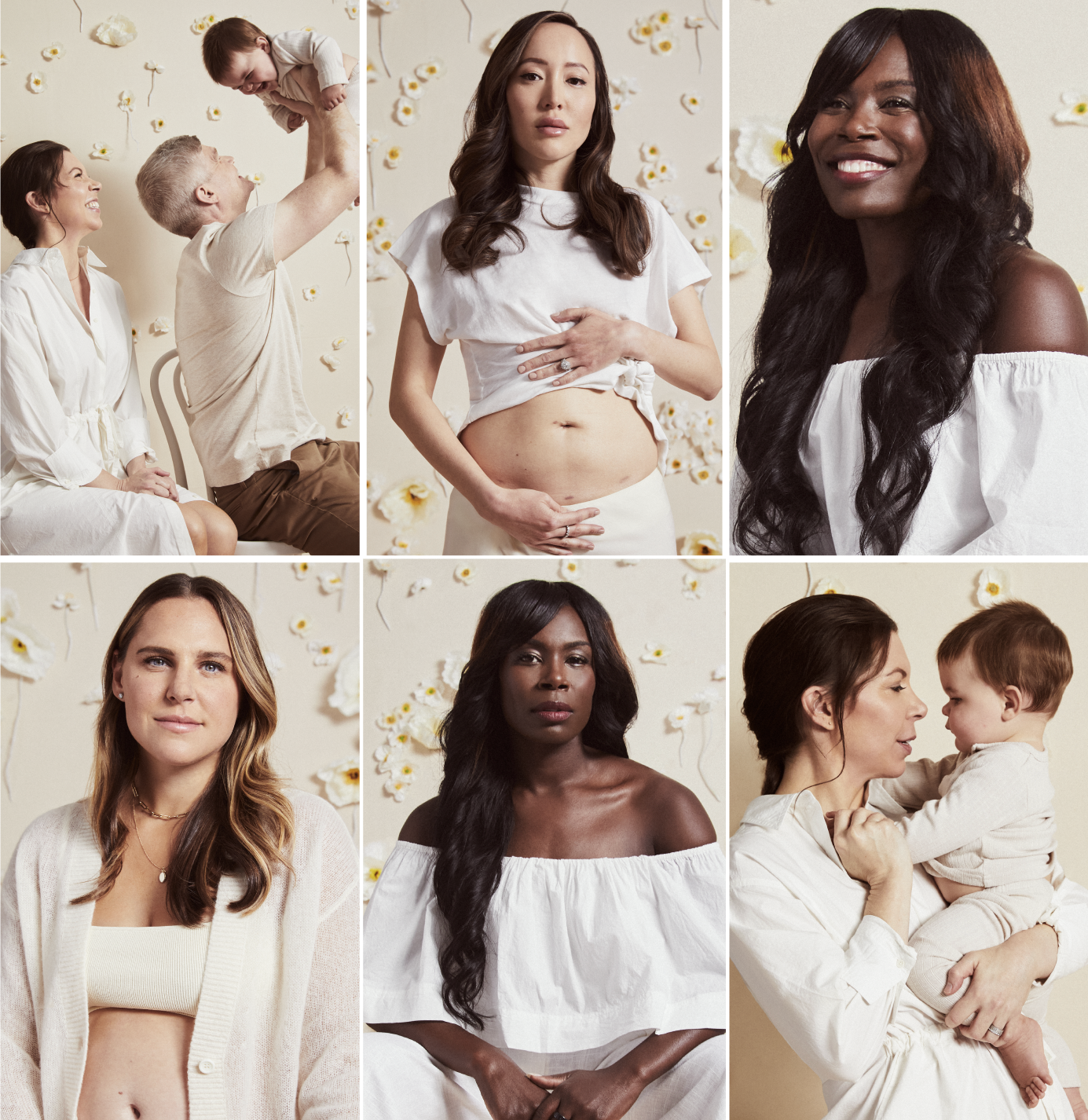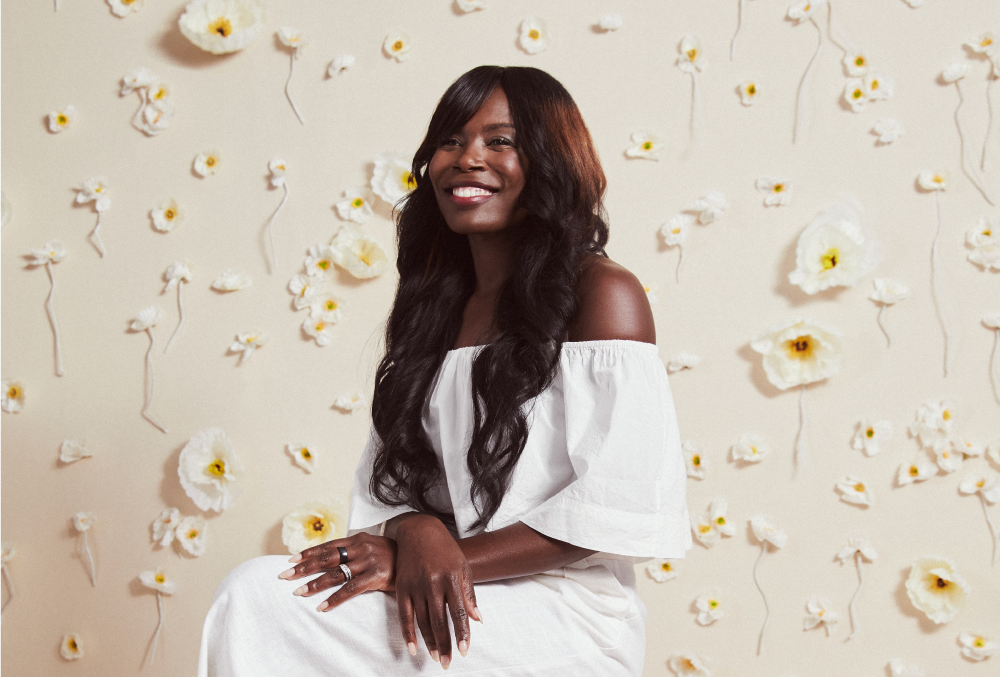
Ashley’s journey of hope through infertility and loss
“After praying about the loss, I knew without a doubt that I was going to be a mother.”
—Ashley, on feeling empowered through infertility and loss
Sitting down with Ashley
Can you share with us about your experience with infertility?
It's weird actually to say that we've been trying for about eight years to get pregnant and to have kids, because I think when we were 27 years old, getting married, we're like, "We have all the time in the world." One of the conditions of our marriage was that we sit in our marriage for five years, enjoy each other, then we'll talk about kids, right? We'll talk about what our plan was. So when the five years came, we were like, "It's easy to get pregnant. We're still young." We were, what? 33 at the time. And then we weren't seeing the results. And so we were like, "Okay, this is odd, but we're new to this."
And then we got pregnant. And so we were super excited. It only took us, I want to say, a couple of months, which we were like, "That took a long time, but we're here, so we're excited." And that ended up being in ectopic pregnancy, which by all counts is an emergency situation. We go to the emergency room, they tell us we’re having an ectopic pregnancy, and at first they want to treat us orally. We thought that would be the end of it, but we ended up having to have surgery, so they removed the fallopian tube. So now, you're trying to get pregnant, you have one less fallopian tube, and then you have this experience, right? And going into that experience, it was like, "Okay, maybe it's not as easy. Maybe this will be a journey. Maybe we do have to assess certain things a little differently, how we approach parenthood, how we approach getting kids."
After the ectopic pregnancy in September of 2015, we took a little break just to assess my body, to assess what our goals were. And then we went back. We were like, "We can do this on our own." So we got pregnant again, and I believe that was December of 2017. So we're like, "Oh, great, we're pregnant again." And then we ended up having to have a D&C. So that's two losses back to back. And we're just like, "Okay, let's take a minute, figure out what's going on with our bodies, what's going on with my body."
We decided to do IVF in April of 2019 and I found out I had fibroids. We did the IVF retrieval before fibroid surgery in November of 2019. We retrieved 19 eggs, zero embryos. Then it was the pandemic.
I had my fibroid surgery in November of 2021 and we tried on our own for a year after that. We did a 2nd round of IVF in November 2022, where 16 eggs were retrieved, 9 were fertilized and 6 matured. None of those eggs grew enough to be viable. Following that retrieval, the doctor recommended a donor egg. In August 2023 we put donor eggs on hold and now I am assessing my body for the donor process.
Did you experience feelings of shame or blame? How did you move through that?
I've been pretty open with my family and friends about my journey. Fortunately, I have not felt shame. A lot of other feels, though. I was really disappointed in my body. I work in sports. I wouldn't say I'm an athlete. I used to be an athlete, but I try to take care of my body. I try to be fit. My body's important to me. And so it feels like a setback. What did I do wrong? What did I take that wasn't appropriate? All the things that we assess when things don't go well with our body. How did we influence that? How can we influence that? And the reality is that, no matter how or what we try, if it's not meant to be, it won't be. But when it is meant to be, it will.
And so we have to be patient with ourselves. We have to be patient with our bodies. They are designed to do what they're going to do. I didn't think this experience would be so challenging and that no matter how I "trained" for this, it was out of control. The reality is that my eggs haven't been viable and there is nothing that can be done to influence the quality.
I’ve moved through it by processing in my own way and not allowing my feelings to be influenced by others. Everyone around you has their own feeling toward the situation but I always made sure that I prioritized how I felt first and then how my husband felt.
My hope is that I can produce life. But if that's not my journey, I'm okay with that too, because I will be a mother.
ASHLEY, ON STRENGTH AFTER LOSS & INFERTILITY
I know I'm going to be a mother. I know I'm going to carry my children. I know that motherhood looks very different for every person. There are mothers on this earth who have never given birth. But they have legacy. They have children. They have influence. They have motherhood on their life. They have an anointing on their life. And so it's one of those things where I'm going to be patient with my body. My hope is that I can produce life. But if that's not my journey, I'm okay with that too, because I will be a mother.
How do you stay hopeful through infertility?
Our doctor recommended we look into an egg donor. About two months ago, we were like, "Okay, let's do it." And so that's where we are in our fertility journey. We're looking for a donor egg. We're now reassessing my body because that six month window has expired, and figuring out what our next steps are with the donor egg. And I think that when you think about the whole process, I know that I'm going to be a mother. I think that motherhood comes to people in very different ways. And so the only thing I can do is the last thing God has told me to do. And so that's what I'm doing. After praying about the loss, I knew without a doubt that I was going to be a mother.
What does life look like today?
Did you and your partner navigate the experience similarly or differently? How did it affect your relationship?
Similarly. We are glass-half-full people and know that we will be parents one day. One challenge that my husband faced that I didn't consider, was seeing me go through the surgeries and procedures made him hesitant to try again.
I don't know if a lot of people go through the IVF process, but when you're paired or you're partnered, it's not just one person going through the process. My husband is also testing and going through it. And I think one thing I learned about my husband while going through the process and all the steps is that he's in it with me. This is a process for him too. My loss is his loss. His loss is mine. And so when we were thinking about what to do after that D&C, we were just like, "Okay, let's get our bodies tested. Let's figure out what the issue is so that we can solve for at least that." And so we started doing research, started getting tested. Found out that I had fibroids, which is so common in the African-American experience.
You’re not in this alone
Poppy’s Loss Hotline is available 24/7 in our app, for immediate loss support.
Poppy’s Loss Care Guides
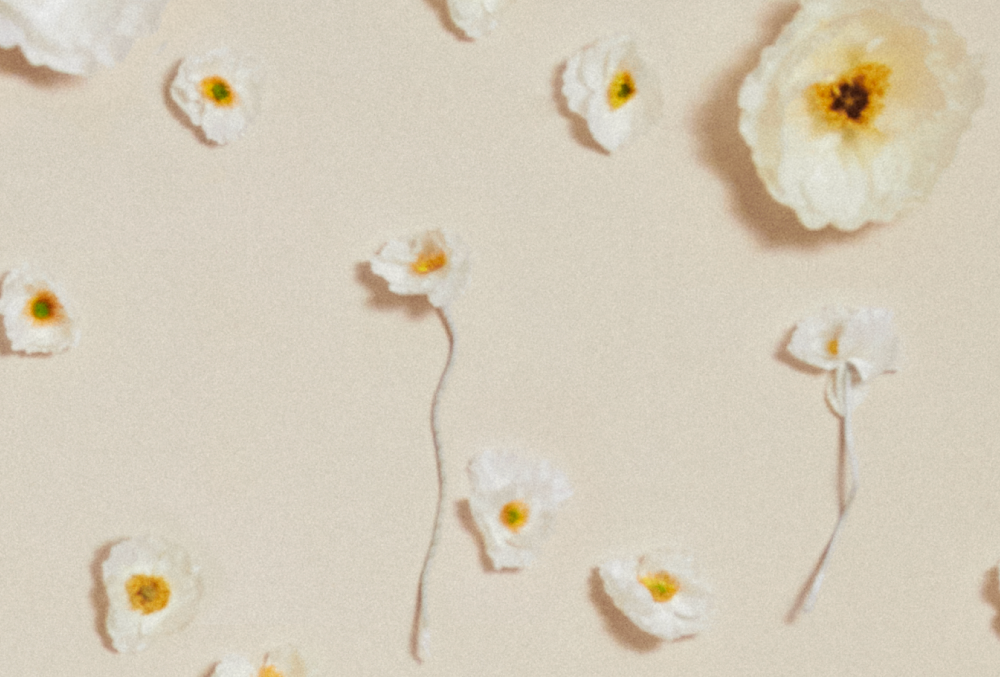
Want to share your own Thiscarried story?
Through honest storytelling and shared experience, we can help each other feel less alone, tap into our own strength, and eradicate shame around pregnancy and infant loss.
Download and share the Thiscarried tile with your own story of loss, to help us destigmatize these experiences.
#Thiscarried | @poppyseedhealth
